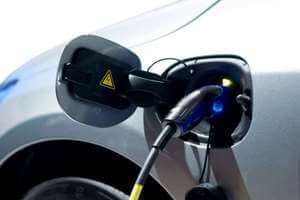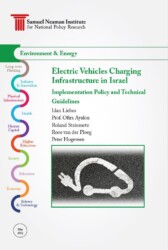Electrification of the transportation sector serves the goals of reducing oil-dependency, lowering harmful air pollution in densely populated areas and decreasing greenhouse gases emissions, through the superiority of electric drivetrains in energy efficiency, compared to the conventional internal combustion engines. However, one of the main barriers for electric vehicle (EV) adoption remains the charging infrastructure availability.
Israel is a small, highly urbanized and densely populated country. It is characterized by a high dependency on private car commute, high vehicle travel distance and a growing car market with high demand – despite high taxes and market prices. The country has no meaningful domestic oil production, but does have an abundancy of natural gas, ample potential to harvest solar energy, attractive electricity rates and EV tax incentives. Given those circumstances, Israel serves as a prime candidate for high rates of EV adoption.



